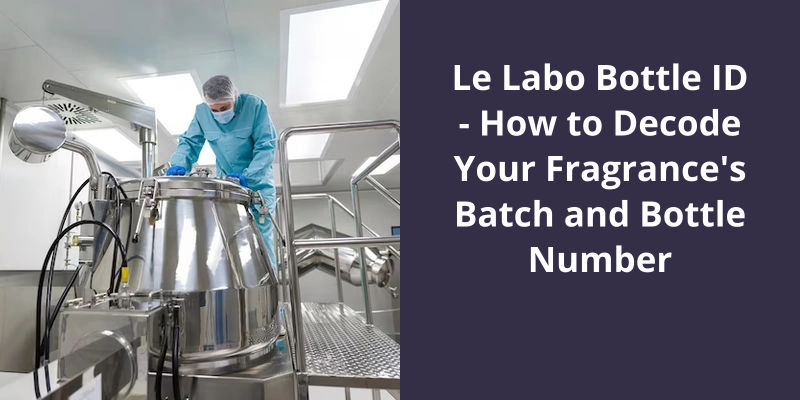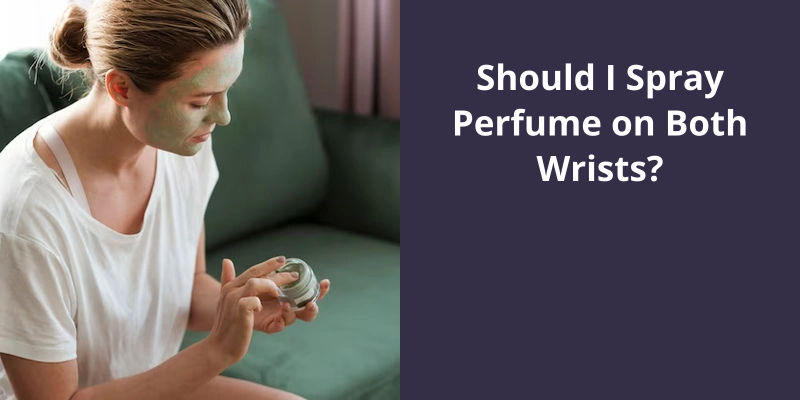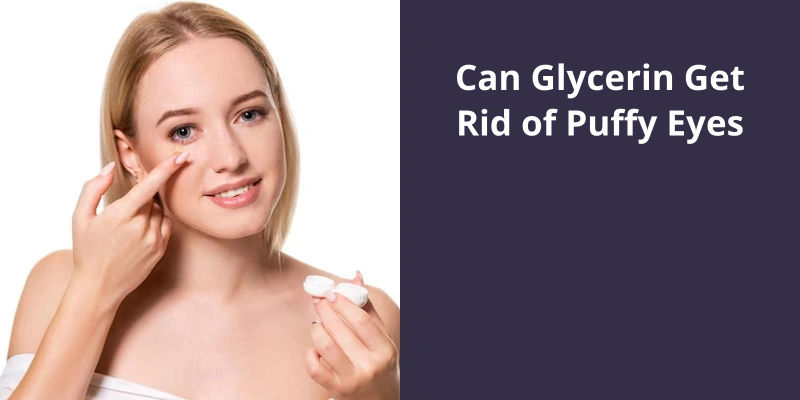Your room spray might appear cloudy due to several reasons. It could be due to the mixture of different oils and water in the spray. Oils and water have diverse densities which makes them separate and could contribute to a cloudy appearance. Another reason could be the change in temperature that causes condensation inside the bottle. If your spray has natural ingredients, then their particles can also cause a cloudy appearance. Lastly, if the spray is old or has been exposed to sunlight or heat, it could result in the degradation of the ingredients causing cloudiness. Always, make sure your spray is properly stored and shaken well before use to avoid such issues.

How Do You Make Room Spray Not Cloudy?
An emulsifier is a substance that helps to combine two substances that wouldn’t normally mix, such as oil and water. Adding an emulsifier to your room spray recipe is crucial to achieving a clear, consistent product. Some common emulsifiers for room sprays include liquid lecithin, polysorbate 20 and 80, and vegetable glycerin.
Liquid lecithin is a natural emulsifier derived from soybeans. It’s a great option for those who prefer natural ingredients in their room spray recipes. Polysorbate 20 and 80 are synthetic emulsifiers that are widely used in the cosmetic and fragrance industry. They’re known for their ability to produce clear, stable emulsions that don’t separate over time. Vegetable glycerin, a natural byproduct of the soap-making process, can also be used as an emulsifier in room spray recipes.
To ensure that your room spray remains clear and consistent, it’s important to properly dilute your essential oils or fragrance oils before adding them to the water base. Avoid using too much essential oil, as this can cause the solution to appear cloudy.
Tap water may contain minerals and impurities that can interfere with the clarity of your finished product. Distilled water also helps to prevent the growth of bacteria and mold in your room spray.
If you do experience cloudiness in your room spray, there are a few things you can try to fix the issue. First, try adding more emulsifier to the solution until the cloudiness disappears. You can also try shaking the bottle vigorously before use to help incorporate any separated ingredients.
With a little bit of experimentation, you can create a lovely, fragrant room spray that’s both effective and beautiful.
When it comes to perfumes, separating and cloudiness can be common issues. However, this doesn’t necessarily mean that there’s something wrong with the perfume. In fact, certain oils may just not blend well with others, causing separation or cloudiness in the perfume oil. But don’t worry, there’s an easy fix for this issue. Simply give the perfume oil a gentle shake before use to make sure all of the ingredients are evenly distributed.
Why Is My Perfume Cloudy?
Additionally, the quality of the oils used in the perfume can affect it’s clarity. Natural plant-based oils, such as those derived from citrus or vanilla, are known to be more prone to clouding than synthetic oils. This is because natural oils contain more impurities, which can cause the oil to appear cloudy. It’s important to note, however, that the cloudiness of a perfume doesn’t necessarily indicate a lower quality of ingredients or a negative impact on the fragrance itself.
Plastic bottles can leach chemicals into the perfume, causing it to appear cloudy or even altering the scent. Glass bottles are recommended for storing perfumes as they don’t react with the oils and are impermeable to light and air. It’s also important to ensure that the cap or lid is tightly sealed to prevent air from entering the bottle, which can cause further clouding.
How to Properly Store Perfume to Maintain It’s Quality and Scent
To ensure your perfume remains high quality and maintains it’s scent, store it in a cool, dark place away from direct sunlight and heat sources. Keep the bottle tightly closed to prevent evaporation and oxidation. Avoid exposing the fragrance to the air for extended periods of time, and try to use it regularly to prevent it from going bad.
By using this method, you not only get to enjoy the fragrance for a longer period of time, but you also get to enhance the overall ambiance of the room. Now that we know how to make our homemade room sprays last longer, let’s explore some creative ideas for making our own scents.
How Do You Make Homemade Room Spray Last Longer?
Another tip for making a room spray last longer is to use a carrier oil with the essential oils. Carrier oils such as sweet almond oil or jojoba oil can help to extend the life of the scent in the same way that they do for essential oils used in diffusers or rollers. Just mix a few drops of the essential oil with a carrier oil and spray onto your furniture or linens for a longer-lasting scent.
A higher concentration will mean that the scent is stronger and will last longer. Look for room sprays with a higher essential oil content and avoid those with mostly water or other fillers.
Additionally, make sure to store your room spray properly. Keep it in a cool and dark place away from direct sunlight and heat. This will prevent the essential oils from breaking down and losing their fragrance over time.
Lastly, if you’re still struggling with your room spray lasting long enough, try spraying it onto fabrics that you can easily wash and then re-infuse with the scent. This could be as simple as spritzing it onto a throw pillow or blanket that you wash frequently, allowing you to constantly refresh the scent in your space.
With a few simple tweaks, you can enjoy a longer-lasting and more enjoyable scent experience in any room of your home.
In addition to a change in scent, another indication that your perfume may be past it’s prime is a change in appearance, specifically, the opacity of the liquid. If you’ve noticed that your once translucent fragrance has turned cloudy or more opaque, it could be a sign that it’s time to let go of that bottle. However, it’s important to note that this change in appearance should be accompanied by a change in scent, as a cloudy perfume doesn’t always mean it’s gone bad.
Why Does My Perfume Get Cloudy?
The reason your perfume may become cloudy is due to the process of oxidation, which occurs when the scent is exposed to oxygen. This can happen even if you’ve stored your perfume in a cool, dark place. Once the oxidation process begins, the chemical composition of the fragrance can change, altering the scent and causing it to lose it’s original clarity.
Cloudiness can be a sign that your perfume is no longer safe to use. It may also indicate that the fragrance has lost it’s potency and is no longer able to deliver the same aroma as it did when it was first purchased. It’s also possible that the scent has developed a rancid or stale aroma as a result of oxidation.
Certain ingredients in perfumes, such as musk and amber, are particularly prone to oxidation. This means that certain types of fragrances may become cloudy faster than others. Additionally, fragrances that contain a higher concentration of essential oils or natural ingredients may be more susceptible to oxidation than those that are made with synthetic ingredients.
To prevent your perfume from becoming cloudy, it’s important to store it properly. Keep it in a cool, dry place, away from direct sunlight and heat sources. Additionally, make sure that the lid is always securely fastened to prevent oxygen from entering the bottle. When applying your fragrance, try to use it up within a reasonable amount of time to prevent the buildup of bacteria and the onset of oxidation.
While it may be tempting to continue using your favorite scent, doing so could put your health at risk and also lead to disappointment when the aroma no longer smells as it should. So, take the proper precautions to prevent oxidation and keep your perfumes safe for use.
How to Tell if Your Perfume Is Expired or Gone Bad
- Check the expiration date on the bottle. Perfumes usually last for 3-5 years from the date of manufacturing.
- Inspect the color of the perfume. If it’s darkened or changed color, it might have expired.
- Give it a sniff test. If the scent has turned rancid or smells off, it’s probably gone bad.
- Check for any sediment or particles in the bottle. This can be a sign of bacterial growth and the perfume should be discarded.
- Take note of any changes in the consistency or texture of the perfume. If it appears thicker or has separated, it’s time to throw it out.
Conclusion
In essence, the cloudiness of your DIY room spray could be attributed to a variety of factors – be it the essential oils or the dried foliage you've added. Regardless of these factors, though, it's important to note that this cloudiness isn’t necessarily a bad thing. In fact, it's perfectly normal for DIY sprays to be cloudy, and it doesn't mean that your spray is any less effective in freshening up and revitalizing your living space. So, the next time your room spray turns out cloudy, there's no need to worry – simply inhale the blissful aroma and enjoy the cozy ambiance that it brings to your room!





